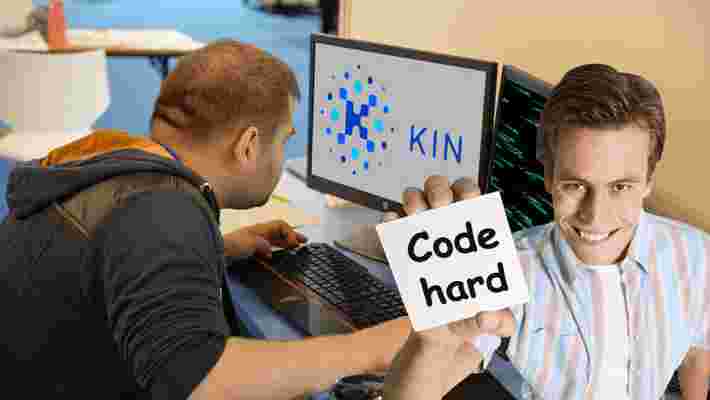Global payment services provider and Fortune 500 company, Visa, is showing signs that cryptocurrency and blockchain will be part of the company‘s future.

According to a job posting on recruitment platform SmartRecruiters , Visa is looking for an individual passionate about payments and cryptocurrency, and is already well-connected in the cryptocurrency and fintech industry.
“Are you passionate about the intersection of payments and cryptocurrency? Are you deeply familiar with permissionless blockchain technology and have a close network of experts in the fast moving cryptocurrency and fintech ecosystem?” the job listing reads. “Are you excited about the challenge of developing new products for Visa to deliver value to fintechs looking to support cryptocurrencies?”
The role at Visa will require the successful applicant to execute Visa‘s product strategy for its cryptocurrency-oriented products; linking different departments of Visa from research and engineering to bring these products to market.
The job listing also asks for someone familiar with permissionless blockchains. This is initially surprising given that permissionless systems are typically used in open and public settings. Banks, payment providers, and institutional applications generally favor private permissioned systems as they offer greater security, control, and scalability over their permissionless counterparts.
But given that Visa and IBM announced a partnership last year, in which they will use Ethereum tech to redress the global payments industry, it’s more understandable.
Even so, the Australian bank that tracked 17,000 kilos of almonds on the blockchain used a private Ethereum-based protocol. So in Visa‘s case, we’ll have to wait to see if any of its systems actually are permissionless – or just built on traditionally permissionless tech.
Earlier this month, Hard Fork also spotted that oil and gas giant Royal Dutch Shell is recruiting graduates for the role of “ blockchain analyst ,” along with Visa‘s latest listing, there is a further evidence to support the growing trend that the biggest blockchain employers are large multi-national, old school corporate firms .
Want to find out more about cryptocurrencies and blockchain technology? Check out our Hard Fork track at TNW 2019 !
Sony partners with itself to manage content rights with blockchain
A partnership between the Sony Corporation, Sony Music Entertainment (Japan), and Sony Global Education has today announced the development of a “system for authenticating, sharing, and rights management of educational data.” In other words, Sony has joined forces with itself to put its content rights management on the blockchain.

“This new system is based on Sony and Sony Global Education’s previously developed system for authenticating, sharing, and rights management of educational data, and additionally features functionality for processing rights-related information,” the announcement states.
The press release goes on to say the rights management system will focus on “written works.” Sony claims using blockchain will allow information about the content to be recorded in an immutable way.
It appears, when functional, this blockchain-based rights management system will be implemented for other types of digital content like, “electronic textbooks and other educational content, music, films, VR content, and e-books.”
The exact details of how this system will be implemented and rolled out have not been made clear. Sony has stated that it is considering commercializing the system as a service though.
While IBM has not been mentioned in this project, last year Sony partnered with the tech giant to create a blockchain that stores academic records – a project that sounds eerily similar to today’s announcement.
Craving more blockchain? Join us at Hard Fork Decentralized, our three-day event in London. We’ll discuss the industry’s future together. You can now register on our website !
Kik is giving $3M to developers to build for its KIN cryptocurrency
The Kin Foundation has announced a new developer incentive program aimed to entice people to build distributed applications using Kik Messenger’s KIN token.

The program will see the Kin Foundation disburse up to $3 million in incentives to 25 selected different developers. Payment takes the form of both fiat and Kin tokens, and is paid over a period of six months. The Foundation also offers development tools and mentorship to participants.
In total, developers have the opportunity to earn a total of $116,000 USD, split between $60,000 in fiat, and 400 million KIN tokens. To get the full ammount, participants must hit three different milestones by certain times.
Phase one is arguably the easiest, and merely requires developers build an approved app using the KIN Ecosystem SDK by October 2, 2018. At this point, the Kin Foundation will hand over 50 million KIN tokens (which are valued at roughly $7,000) and $15,000 in fiat.
The following phase requires developers to hit an ambitious growth target. To access the next disbursment of 100 million KIN (valued at $14,000) and $15,000 in fiat, the app must attain 10,000 monthly active wallets. Not only does the developer have to attact users, they also have to retain them.
The third phase ends April 1, 2019, and requires developers to build further on their user numbers, and reach 50,000 monthly active wallets. Accomplishing this unlocks the lion’s share of the reward, with a disbursement of 250 million KIN (valued at $35,000) and $25,000 in fiat.
Applications for the program open today, and close on August 10, giving developers one month to come up with an idea and a team, as well as a killer pitch. To register, head to the Kin Foundation website , where you can also find the developer guidelines.
Developer incentives are a fairly conventional way to build developer interest in an ecosystem. It’s a tactic that was employed by both BlackBerry and Microsoft to stoke developer enthusiasm for BlackBerry 10 and Windows Phone respectively.
It’s not surprising to see it employed in the blockchain and cryptocurrency worlds. Nor is it the first time an entity in this space has used this tactic. The Ethereum Foundation offers grants to selected projects that’ll improve the scalability, usefulness, or security of the Ethereum network.
Another example is Nebulas, which offered a developer incentive program for some time . This saw the company distribute $5M in NAS tokens to 1,337 participants who built apps and services based around its token.
With the KIN token, the KIN Foundation and KIK Messenger want to change how we reward creative workers by bypassing the usual gatekeepers – from advertising networks, to sites like Patreon and GoFundMe.
Crucially, it wants to move the KIN token from a fundamentally speculative investment instrument (like most cryptocurrencies) to something that has a meaningful and practical application. But will this developer incentive program help it realize its goal?
I’m not sure. On one hand, the KIN Foundation is backing only 25 different projects. It’s obviously focusing on quality rather than quantity. That said, it’s asking quite a bit from developers. Building a cryptocurrency-based app with 50,000 users within six months won’t be easy, and it wouldn’t surprise me to see a fair bit of attrition from the program.











